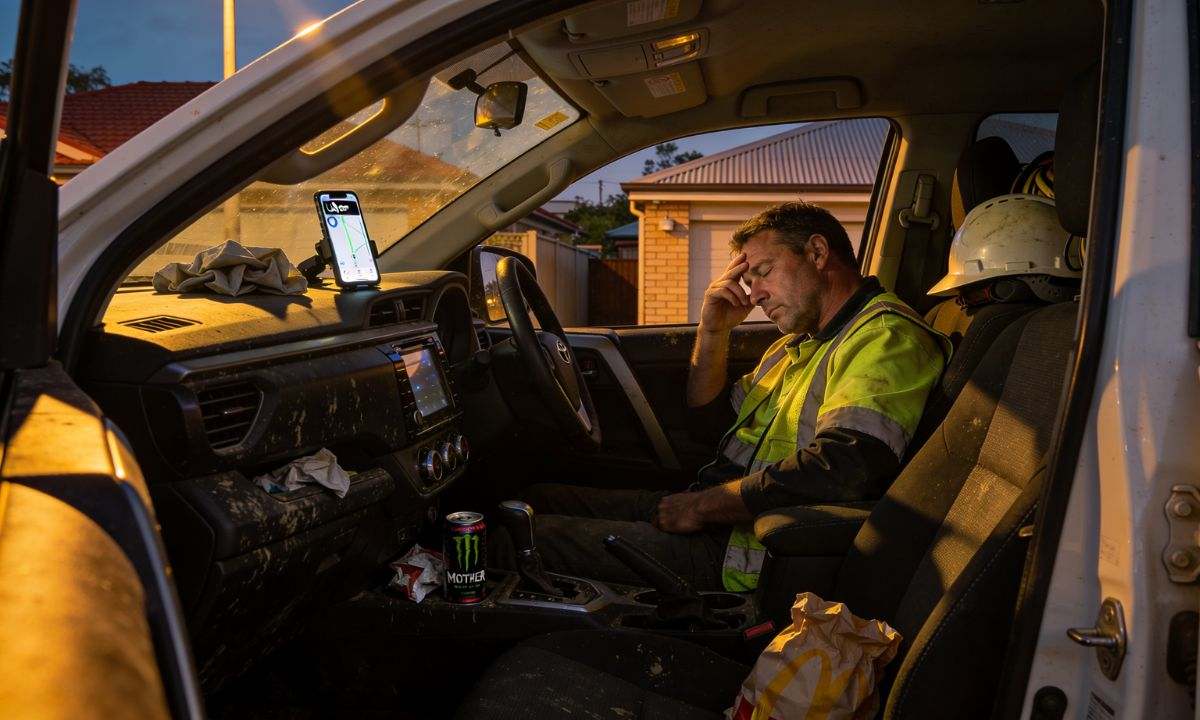Smith’s Lawyers Blog
Latest articles and news
News, insights and resources for Queensland road safety, work safety and dealing with unexpected set backs in life. Browse our latest articles or select a category of interest below.

Why Drug Driving Now Kills More Queenslanders Than Drink Driving - And What Actually Works
Drug driving deaths now exceed drink driving in Queensland

The Second Job That Breaks You: Why Side Hustles Are Quietly Driving Injury Risks Through the Roof
Side hustles are pushing workers to fatigue and serious injury risks.

Mental Health at Work: Recent Changes to Australian Law
Australia’s workplace mental health laws are changing fast. Here’ what the reforms mean.

Out in the Sun: How Backpackers and Harvest Workers Can Survive the Heat
Backpackers and harvest workers face extreme heat risks, here’s how to stay safe on the job.

Outback, On Edge: Queensland's Most Dangerous Jobs Revealed
Queensland’s deadliest jobs are regional, remote and high-risk,where distance turns injuries fatal

The Rise of Gamified Road Safety Programs
Gamified road safety programs test if interactive learning can change young Australians’ road beha

Young Guns, Old Risks: Why Under-25s Get Hurt at Work more
Young workers aren’t careless. Inexperience, culture, & systems failures drive workplace injuries

Gen Z vs The Fatal Five: Turning Risk Into Safe Habits
Gen Z tackles the Fatal Five by turning high-risk actions into smarter, safer workplace habits.

Wildlife On The Move: How to Drive Safer Through Queensland's 'Animal Collision Season'
Wildlife collisions peak in Queensland. Discover safety strategies to protect yourself.

Workplace
Deadly Dust: Compensation Claims on the Rise in Stone Bench-Top Industry
Silicosis has been called the biggest lung disease crisis since asbestos.

Workplace
Teachers and their rights at work in Queensland
Did you know about 70% of teachers claim to have experienced bullying and abuse from students?

Workplace
The importance of keeping tradies safe on the job
Tradies represent more than half of Australia's serious workers' comp claims each year.

Workplace
What Rights Do Workers in the ‘Gig’ Economy Have?
Services like Deliveroo and Airtasker are taking to new heights. What rights do gig workers have?

Workplace
Subcontractors and Insurance: What You Need to Know
Are subcontractors responsible for their own workers' compensation insurance? Read on to find out.
.png)
Workplace
Understanding workplace psychological injury & stress claims in Queensland
Psychological injury or stress claims can be considered as workplace injuries.

Workplace
Should COVID-19 be declared a workplace injury for frontline workers?
Should COVID-19 be declared a workplace injury for frontline workers?

Workplace
Safe work is everyone's responsibility
Every two days in Australia, someone will die from a work-related injury or illness.

Workplace
Why you should always use your own doctor after a work injury
Doctors are key decision-makers in your claim journey, so make sure they're on your side.

Public Place
What to do if you're injured in your rental home
It's more important now than ever to know your rights as a tenant, especially safety at home.

Public Place
When E-Scooters Crash, Who Is To Blame?
How safe are electric scooters, and who gets the blame when something goes wrong?

Legal Interest
Family statement regarding coronial inquest into death of Renae Jean Mann
Family statement regarding coronial inquest into death of Renae Jean Mann
.jpeg)
Legal Interest
How Wearable Technology is Making It’s Way into the Courtroom
How Wearable Technology is Making It’s Way into the Courtroom

TPD Insurance
Understanding TPD insurance claims
Have you seen TPD premiums being deducted from your super, but don't know what it is? Read this.
No items found.

Car & Road
Don't Forget These 5 Things After A Car Accident
Car accidents can leave you feeling unprepared. Know what to do in case the unexpected happens.

Car & Road
How to Get Back on Your Bike After an Accident
Learn the painful lessons I was taught and be thankful you’re still around to ride another day.

Car & Road
Leave the phone alone: Distracted driving, a growing problem
Driving distracted has resulted in hundreds of Queensland fatalities over the past five years.

Car & Road
Roads are getting safer, so why are cyclist deaths increasing?
Cyclists were the only road user to see an increase in road deaths in the past decade.

Car & Road
Survey finds 70% of Qld drivers want dash cams to be mandatory
Support for mandatory dash cams is strong. Could it soon be compulsory to have one in your car?

Car & Road
National Road Safety Week: The reality of Australia's road toll
Each year about 1,200 people are killed and another 44,000 are seriously injured.

Car & Road
10 of the most forgotten road rules in Queensland
We all know that speeding and drink driving are bad, but what about these Queensland road rules?

Car & Road
Wake up: Queensland drivers ignoring fatigue advice
50 per cent of drivers are still ignoring the advice to take a break every 2 hours on long trips.

Car & Road
Practical tips for after a road accident
Car accidents are stressful and difficult at the best of times. If you’re injured in one, read on.

General
PTSD: Post Traumatic Stress - A Partner's Survival Guide
You don't have to feel helpless if your partner has PTSD. Here's how you can help them and you.

General
Chronic pain: survival guide for partners and family
Those who care for people living with chronic pain play a vital role in effective pain management.
.jpeg)
General
Everything you need to know about insurance surveillance
How far can insurance investigators go? What is legal? What should you do if you're being watched?

General
Media release: Law firm calls for more action on worker fatalities
We encourage employers and employees to take a proactive stance on improving workplace safety.

General
Why it's important to protect your mental health after injury
After an injury, it's important to recover physically — as is taking care of your mental health.

General
5 Free Apps to Help with Anxiety and Post-Traumatic Stress (PTSD)
Here are some apps to help your mental health after an incident or accident.

General
Not Everybody Gets a Break: Working Through the Holidays
If you’re one of those who keeps working through the holiday season, be careful.

General
The Ultimate A-Z Tradie Dictionary
Tradies have their own special language, so it's only fitting they have their own dictionary.

General
A Safety Guide For Young Workers In Trade
Read our tips on how young workers can safely navigate their way around a new workplace.
If it's time to talk, we're here to help. Get free advice direct from our solicitors today.
Our company and team are members of










